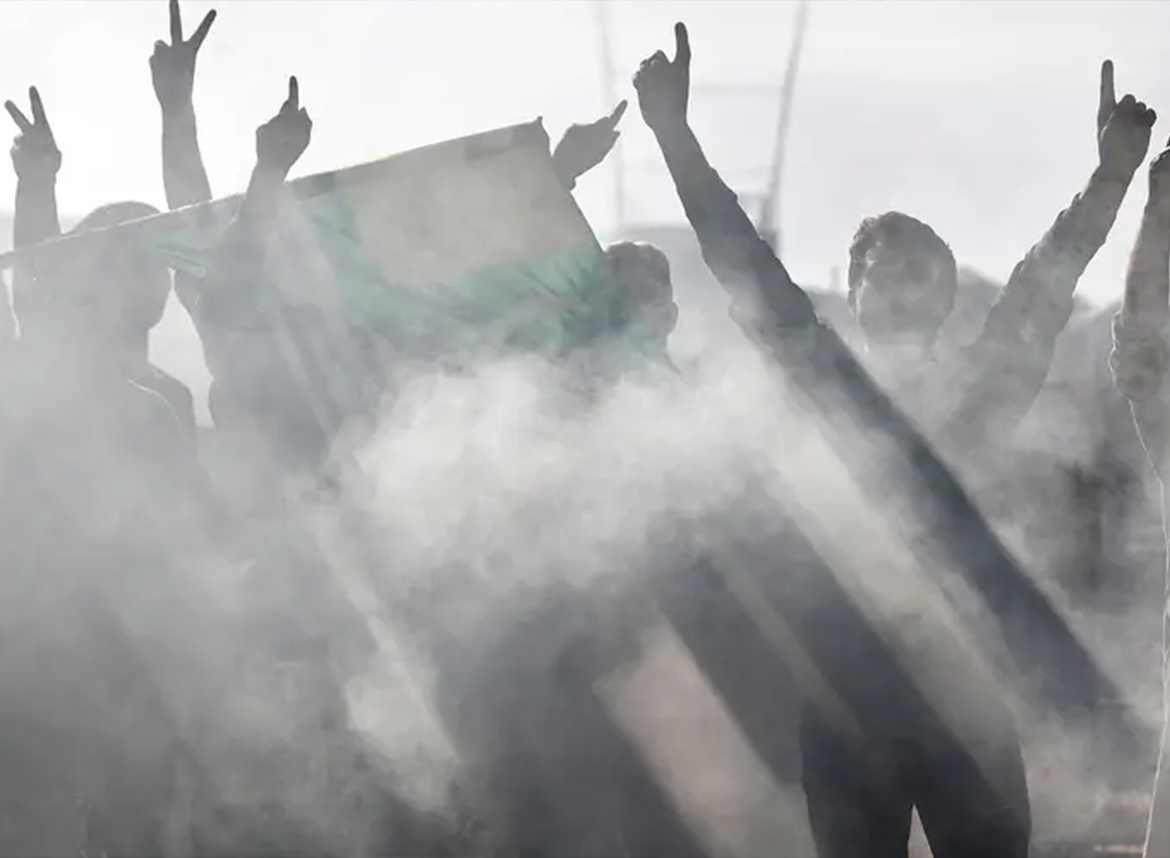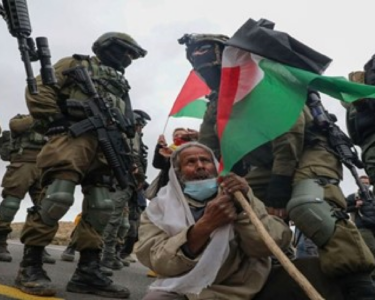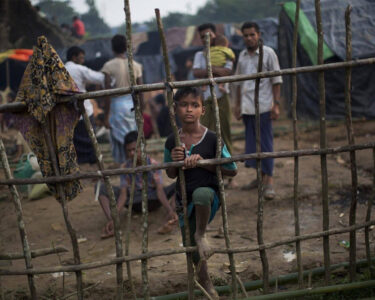The Kashmir conflict has been a longstanding territorial dispute between India and Pakistan for years. Has led to severe human rights violations affecting the lives of millions of people in the region. In the current year the situation is still concerning, with reports of misconduct, by various states. The global community is keeping an eye on the situation. Significant action to help the Kashmiris is still absent making their situation even more challenging.In this article aims to provide a concise overview of the current human rights landscape in Kashmir, focusing on documented violations and the actors involved.
Lately the increase in activities and the strict security actions taken by the government have led to a build an atmosphere of fear and unpredictability among the people. Various human rights groups have reported violations such as killings, forced disappearances, unjust imprisonments and extensive limitations, on freedom of speech and peaceful gatherings. Strict laws, like the Public Safety Act and Unlawful Activities (Prevention) Act (UAFA) have given authorities authority to hold individuals in custody for periods without charges This often results in prolonged legal uncertainty and emotional distress, for those detained and their families.
The increased presence of forces in areas has worsened the delicate social balance even further. Recurring clashes between security personnel and alleged militants heighten tensions. Lead to harm to civilians and damage to property. These clashes frequently take place in neighborhoods where it is challenging to differentiate between fighters and non-combatants making it harder to avoid harm to innocent civilians. The employment of pellet guns to manage demonstrations has resulted in harm such as lasting eye injuries. Causing them to be a contentious method, for upholding societal harmony.
In Kashmir, the human rights crisis is a suppression of dissent and restricting freedoms where journalists as well as activists encounter harassment and intimidation for speaking out against government actions or sharing their concerns openly alongside ordinary individuals facing similar challenges too at times with forceful measures being taken against them. The shutdowns and curfew enforcement disrupt routine functioning impacting access to services and hindering economic progress leading to increased difficulties for the community in the region. Educational establishments and healthcare centers are also impacted by these disruptions, with lasting consequences for the region’s progress and the health of Kashmiri’s.
The lasting impact of conflict and instability on the economy cannot be underestimated in Kashmir. The tourism sector in Kashmir used to play a role in generating income. Has seen a decline due to safety issues and ongoing turmoil. This downturn has had a cascading effect on job prospects. Has added to the standstill in the area. Additionally, the focus on security measures takes away resources that could have been used for improving infrastructure, education and healthcare. Deepening the poverty cycle and feelings of hopelessness.
Globally speaking the Kashmir matter remains a subject matter where different countries and organizations express concern over the humanitarian situation. Pakistan persistently supports the Kashmiris rights on a scale by requesting involvement, from organizations like the United Nations. However, the intricate geopolitical landscape and regional partnerships frequently impede the formation of an impactful reaction to the situation. The absence of a collaborative initiative enables the current situation to endure resulting in prolonged uncertainty and hardship, for the people of Kashmir.
The involvement of countries brings complications to the scenario at hand. Allegations of terrorism, across borders and the illegal transport of weapons heighten distrust and fuel violence. India claims it is fighting against groups to bring about peace; however, advocates for factions contend that innocent civilians are bearing the effect of the conflict leading to increased objections and creating conditions that promote radicalization. This ongoing cycle of violence not only continues to violate rights but also hinders any potential for meaningful discussions or reconciliation efforts.
Additionally, countries in the region have their own strategic interest when it comes to Kashmir that sometimes-overshadowing humanitarian issues. The competition for influence in South Asia leads to deputation engagements and the increase in tensions, rather than fostering a cooperative approach to conflict resolution. This political maneuver detracts from the requirement for secured rights and long-lasting peace initiatives placing the Kashmir population at the center of these power struggles.
The dynamics within Kashmir society also have an impact on the landscape of human rights issues. Conflict between groups and disparities in wealth and social status create a fragmented community where various groups face different forms and levels of oppression. Minority communities are at risk. Encounter a mixture of discrimination and violence. Factors such as identity politics and economics class further complicate efforts to address human rights challenges comprehensively highlight the need for tailored approaches to intervene effectively.
Addressing and documenting human rights violations face problems, as entry to conflict areas hinders international observers from acquiring complete and precise data resulting in gaps in accountability and fairness processes. The freedom of action bestowed upon wrongdoers, be it officials or protestors. Raising an environment of disorder and apprehension that deters victims from stepping to seek justice. It is crucial to enhance systems for accountability by incorporating assessments and safeguarding individuals who expose wrongdoing in order to disrupt this pattern and foster a culture that values human rights.
In Kashmir community life remains crucial in pushing for transformation and aiding those affected by violence. Small scale organizations and grassroots efforts persistently strive to record violations, supply aid and promote awareness of the state of rights. Yet bureaucratic restrictions and an unfriendly atmosphere frequently impede their work by suppressing opposition and curtailing their operations. Backing these groups via unity and development projects is vital, enabling them to uphold their promotion and welfare endeavors.
Education continues to be a source of inspiration, for people in Kashmir; however it also becomes a battleground for power struggles and regulation at the same time Academic institutions often bear the brunt of unrest episodes as students and professors encounter suspensions expulsions and detentions merely for voicing their opinions and pursuing academic curiosity This oppression not only impedes personal development but also suppresses the intellectual and cultural vigor crucial, for the region’s sustainable advancement and prosperity.
The healthcare system in Kashmir is facing challenges as a result of the conflict situation in the region. Hospitals and clinics are sometimes converted for purposes doctors and nurses encounter harassment and there are interruptions in the availability of medications. Mental health problems are widespread with a number of people suffering from trauma and psychological distress due to witnessing or experiencing violence. It is crucial to tackle these healthcare issues through an approach that prioritizes the wellbeing of the community and ensures that healthcare services remain easily accessible and free from any influence.
In light of the ongoing human rights violations and the complex socio-political landscape in Kashmir, it is crucial to recognize the pressing need for immediate action from the global community.
In conclusion, the human rights situation in Kashmir, is a concern that requires urgent action from the global community. The continued breaches involving violence, displacement and restrictions on freedoms underscore the necessity for interventions that focus on the welfare of the people in Kashmir. As we look towards 2025 it is crucial for bodies, governments and civil society to increase their initiatives in supporting the rights of individuals in Kashmir.
Concert actions need to be taken to challenge the requirements as well as the root political issues by promoting discussions between India and Pakistan and involving unbiased mediators to encourage productive talks while also putting in place steps to decrease military presence and restore civil rights. Moreover; it is important for the international community to back organizations that are diligently documenting breaches and delivering assistance so they can carry on with their efforts with adequate resources and safeguards, in place.
Furthermore, it is crucial to hold those who commit human rights violations establishing a culture of responsibility that prevents infringements. Showing support, for the people of Kashmir recognizing their strength and respecting their desires, for peace and fairness can help build a future where their rights are upheld and safeguarded.
The challenges faced by the people of Kashmir go beyond disagreements. Touch upon our shared moral responsibility that requires us to act together as a community of individuals united in preserving human rights and promoting dialogue, for a fair solution that respects the dignity and dreams of everyone living in the area.




